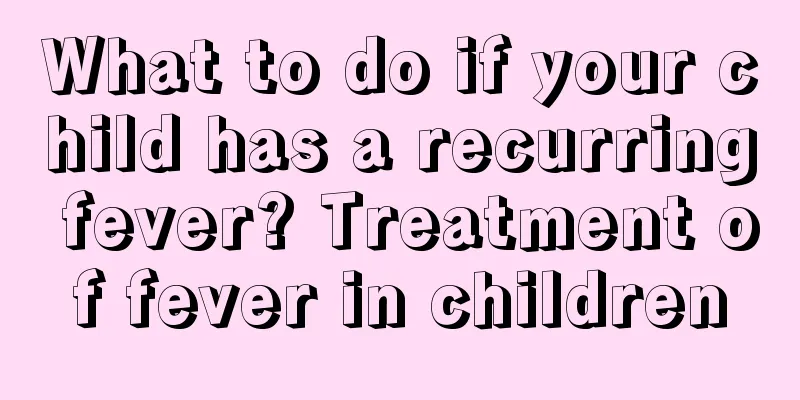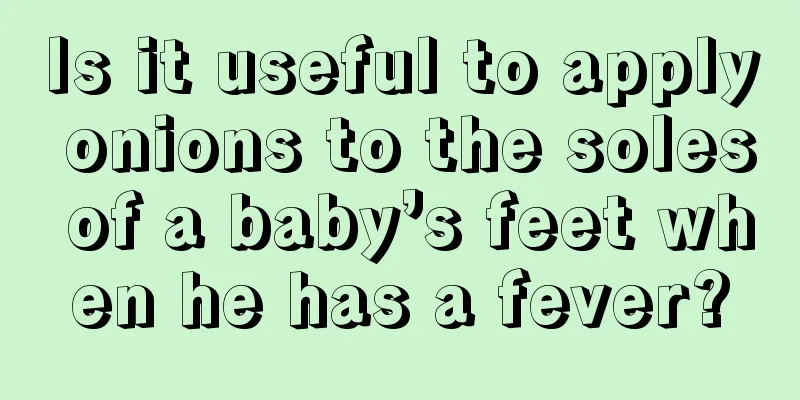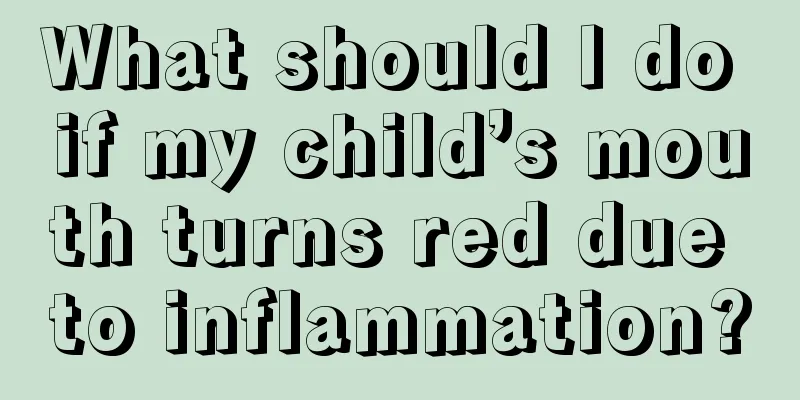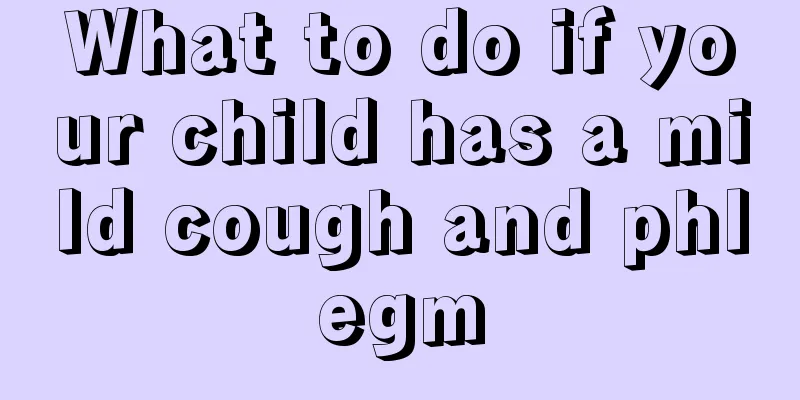What to do if your child has a recurring fever? Treatment of fever in children

|
Children are more likely to get sick during the transition from winter to spring, with colds and fever being the most common. Parents will be very anxious when their baby has a fever, especially when some children have recurring fever symptoms. What should they do? Let's take a look at the advice pediatric experts give to parents. 1. First aid measures (1) You can apply a cold, wet towel to your forehead. It is better to put ice cubes in a waterproof plastic bag and wrap it in a dry towel to apply to your head and neck. You can also apply it to your armpits and groin for better results. (2) Dilute 75% alcohol with half the amount of water, then use a small towel to wet the alcohol and wipe the head, neck, armpits, chest, back and limbs. If the child's limbs are cold or the skin develops chicken skin after rubbing, you should use warm water slightly lower than the skin temperature to wipe the limbs until they turn red and warm again. (4) While doing physical cooling, you should also take antipyretics. If you have a history of high fever and cramps, you should also take sedatives. If your home is far from a hospital and transportation is inconvenient, it is best not to rush to the hospital regardless of anything if you have a high fever. You can first perform the above-mentioned emergency treatment at home. 2. Cooling method (1) Traditional physical cooling method Place the child in a quiet, cool, well-ventilated place. Use a cold towel or cold water bag to apply to the forehead, armpits, groin and other parts, or use an ice bag wrapped in cloth as a pillow on the head or place it on the above-mentioned parts. You can also use cold water (28-30℃) or alcohol (30-50%) to bathe the limbs, both sides of the torso and the back. If the child develops pale skin or cold skin during sponge bathing, stop immediately. Cold saline (30-32°C) enema can also be used, which is more suitable for those suspected of poisoning. It can reduce the temperature and facilitate the collection of stool samples for examination. (2) Drug cooling method For immature children, infants and weak children, antipyretics are generally not used to reduce fever; children aged 0 to 23 months can take Baifuning (antipyretic oral) drops for children, and children aged 2 to 12 years can take Baifuning (antipyretic) solution or chewable tablets for children, once every 4 to 6 hours. The advantage of this antipyretic is that it is absorbed quickly after oral administration and takes effect within 30 minutes. It does not have the irritation to the gastrointestinal tract like traditional antipyretic and analgesic drugs and reduces the impact on white blood cell and platelet function. (3) Acupuncture cooling method 3. Symptomatic treatment (1) When the fever is high, water loss increases and appetite decreases, so water and electrolytes should be replenished in time; (2) For patients who are irritable, have recurrent convulsions, or for whom general cooling measures are ineffective, chlorpromazine and promethazine may be used as appropriate. 4. Treatment methods targeting the cause of the disease For high fever caused by infection, effective antibiotics should be selected according to the condition. Local infection lesions should be cleared promptly. High fever caused by non-infectious diseases also requires appropriate treatment measures based on different causes. |
<<: What should I do if my baby has rhinitis? Parents should keep these tips in mind
>>: What should I do if my child has small eyes? Follow the experts’ advice
Recommend
Why do children keep tossing and turning when sleeping at night?
Sufficient sleep is the basis for us to ensure th...
What to do if your child has worms on his buttocks
If a child has worms on his buttocks, it is usual...
How long does it take for jaundice to subside?
Jaundice is common, especially in newborns. Many ...
Baby sweats while sleeping
For some babies, sweating is a normal physiologic...
What to do if your baby has indigestion and spits up milk
If the baby vomits due to indigestion, parents wi...
What causes yellow skin in newborns?
Many newborns have yellow skin, so parents must p...
Children need to be alert to these 4 "high-risk personalities"
3-6 years old is often referred to as the "w...
Can children with diarrhea eat egg custard?
Diarrhea in children is very easy to occur, which...
What should I do if my baby has a stuffy nose and won’t sleep?
Many babies have stuffy noses and can’t sleep. Ge...
What to do if the redness and swelling after vaccination
We all know that babies will go to the hospital t...
What to do if children have poor appetite in summer
Children tend to become picky eaters in the summe...
Nose bleeding in children
Many parents have reported that their children ha...
Why do newborns sleep restlessly during the day?
Newborns are babies who have just been born. They...
Can a 10-month-old baby use air conditioning?
The weather in the dog days of summer is hot and ...
What to do if water gets into a child's ear
In daily life, many people accidentally let some ...









